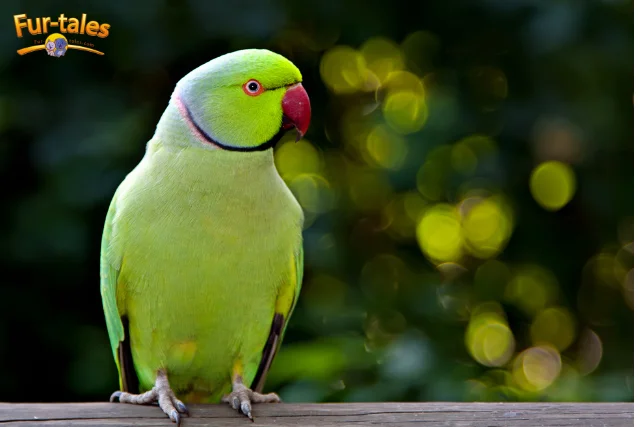
Seasonal Care for Exotic Birds: Temperature and Humidity Control
Exotic birds bring vibrant beauty, intelligence, and unique personalities into our homes. However, their care can be a bit more complex compared to typical pet birds. One critical aspect of caring for exotic birds is understanding how temperature and humidity affect their health and happiness. Whether you’re housing a macaw, parrotlet, African Grey, or cockatoo, knowing how to adjust their environment with the seasons is essential.
Understanding the Natural Habitat of Exotic Birds
Most exotic birds come from tropical and subtropical climates, where temperatures are warm, and humidity is consistently high. For example, macaws and Amazon parrots hail from the lush rainforests of South America, while African Greys originate from the humid forests of Central and West Africa. These environments provide not only warmth but also consistent moisture levels that support skin, feather health, and respiratory function.
Bringing these birds into a home environment, especially in places with pronounced seasonal changes, means pet owners must actively replicate these conditions to keep their exotic birds thriving year-round.
Why Temperature and Humidity Matter for Exotic Birds
Exotic birds are sensitive to environmental changes. Their bodies are adapted to specific climate conditions, and deviations can lead to health issues. Here’s why temperature and humidity control is critical:
- Feather and Skin Health: Low humidity can cause dry, brittle feathers and flaky skin. This can lead to discomfort, excessive preening, or even feather plucking.
- Respiratory Health: Birds have highly sensitive respiratory systems. Dry air or sudden cold drafts can lead to respiratory infections, which can be severe or even fatal if not treated promptly.
- Behavioral Well-being: Exotic birds may become stressed or lethargic when their environment is too cold, too hot, or too dry. Stress can lead to decreased immunity and other health complications.
Optimal Temperature and Humidity Ranges for Exotic Birds
Generally, exotic birds thrive in temperatures ranging between 65°F to 80°F. Some species may tolerate temperatures slightly outside this range, but sudden changes should always be avoided.
- Temperature: Maintain a stable temperature within the preferred range. Avoid placing cages near windows, air conditioners, or heaters, as these can cause fluctuations.
- Humidity: Aim for a humidity level between 40% to 60%. Tropical species often benefit from even higher humidity, up to 70%.
Seasonal Adjustments for Temperature and Humidity Control
Spring and Summer
- Monitor Heat Levels: As temperatures rise, ensure the bird’s environment doesn’t become overly hot, especially in rooms without air conditioning.
- Increase Air Circulation: Use ceiling fans or small air circulators, but ensure they don’t blow directly on the bird.
- Humidity Maintenance: In some areas, summer can be dry despite the heat. Use a room humidifier or mist your bird regularly to maintain proper humidity levels.
Fall and Winter
- Avoid Drafts: Birds should be kept away from drafty windows and doors. Even brief exposure to cold drafts can be harmful.
- Provide Supplemental Heating: If your home gets particularly cold, consider a bird-safe heater or heated perches to maintain warmth without risking burns.
- Humidity Support: Indoor heating systems can dry out the air significantly. Run a humidifier in the bird’s room and monitor humidity with a hygrometer.
Practical Tools for Climate Control
- Thermometer and Hygrometer: Always keep these tools near your bird’s cage to monitor conditions accurately.
- Humidifiers: Choose cool mist humidifiers as they are safer for birds. Clean them regularly to prevent mold and bacteria.
- Misting Bottles: Light misting can help tropical species stay hydrated and maintain feather quality.
- Heated Perches: These provide a safe warming spot for birds, especially useful during winter.
Signs Your Exotic Bird is Uncomfortable with Temperature or Humidity
Being attuned to your bird’s behavior is essential. Signs that your exotic bird is uncomfortable include:
- Fluffed-up feathers for extended periods
- Panting or holding wings away from the body
- Lethargy or decreased activity
- Excessive scratching or preening
- Dry, flaky skin or brittle feathers
- Changes in vocalization patterns
If any of these symptoms occur, check the environmental conditions immediately and make necessary adjustments.
Creating a Consistent Year-Round Environment
Stability is key when it comes to exotic bird care. Gradually adjust temperatures when seasons change instead of abrupt shifts. Consistent routines, including climate management, help exotic birds feel secure and content.
Additionally, enriching their environment with activities, toys, and social interaction complements the benefits of good temperature and humidity control. Remember that environmental stressors can impact both physical and emotional well-being.
Bonus Tips for Exotic Bird Care
- Shower Time: Many exotic birds enjoy showers, which mimic rainfall and help maintain feather condition.
- Natural Sunlight: Whenever possible, allow safe exposure to natural sunlight, which helps with Vitamin D synthesis.
- Fresh Air: On mild days, open windows for ventilation but ensure the bird is safely enclosed and not exposed to direct drafts.
FAQs About Temperature and Humidity for Exotic Birds
Q: How can I safely heat my bird’s room in winter? A: Use bird-safe ceramic heaters or heated perches. Avoid open flames, space heaters, and heated blankets, as these can be hazardous.
Q: Is it okay to use a regular humidifier around my exotic birds? A: Yes, but opt for cool mist humidifiers and clean them frequently to prevent bacteria and mold growth, which can harm your bird.
Q: What is the ideal humidity level for most exotic birds? A: A humidity level between 40% to 60% is suitable for most exotic birds. Some species may need humidity levels up to 70%.
Q: Can temperature fluctuations make my bird sick? A: Yes, sudden temperature changes can stress a bird’s immune system, leading to illness. Always aim for gradual shifts in environmental temperature.
Q: How often should I mist my exotic bird? A: It depends on the species, but generally, misting once a day or every other day can help maintain feather and skin health, especially in drier climates.
Image Source: Canva
